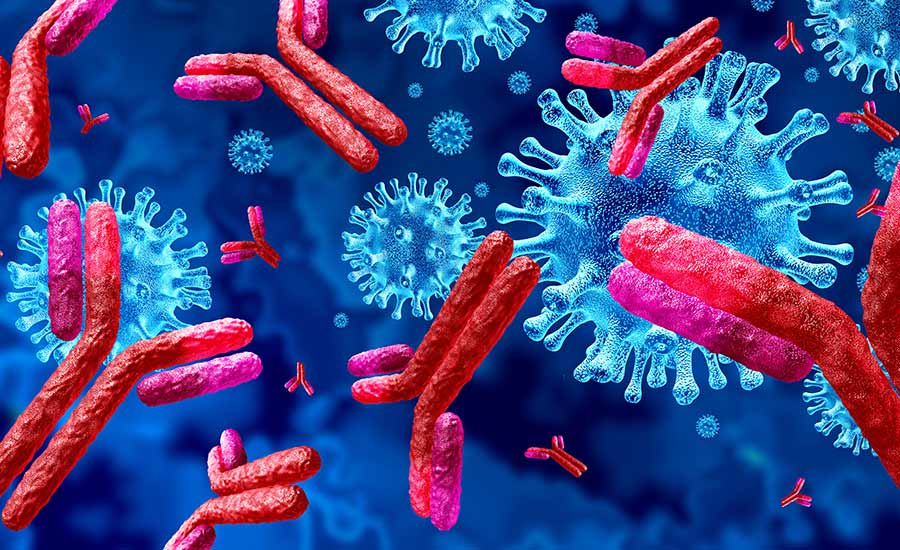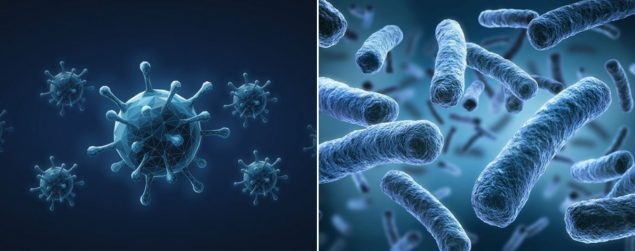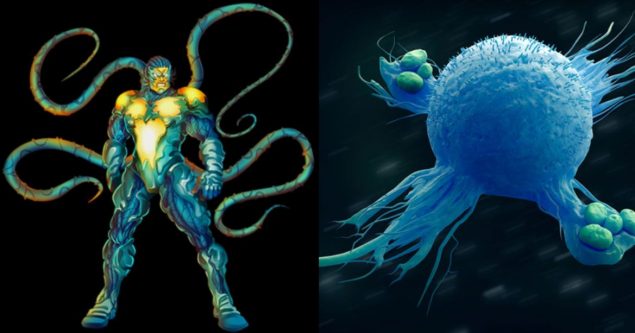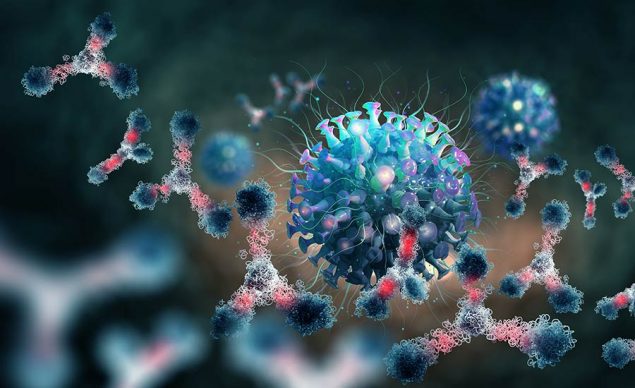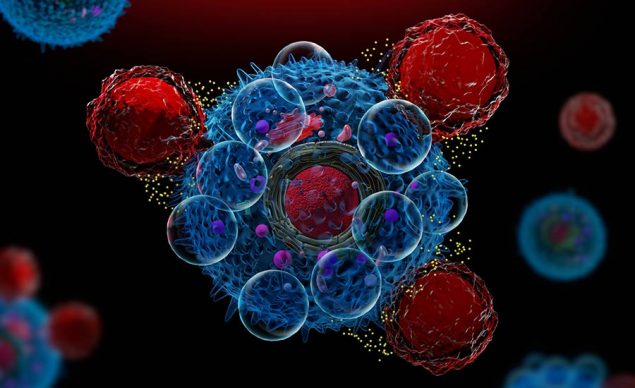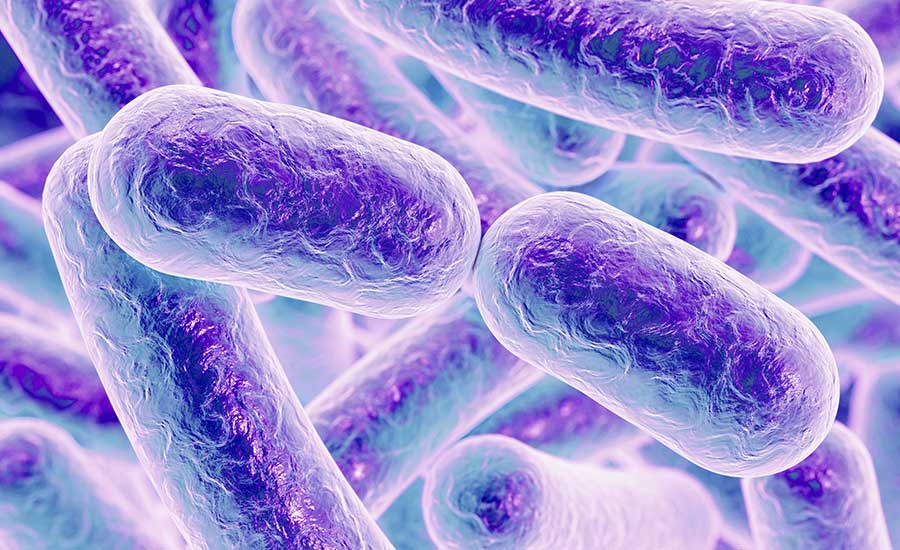Related Resources
When unwanted guests such as viruses and bacteria enter your respiratory tract, they intend to use your resources to grow in numbers and thrive.
But your body is a force to be reckoned with, ready to confront anyone who messes with it.
So, when alien substances attack your cells, all inner alarms go off! Your immune system gets in full-on battle mode as it starts to make the necessary types of antibodies and launches them to fight off intruders.
Read on to find out what antibodies are, what types of antibodies exist and what makes them deadly to foreign invaders.

What Are Antibodies?
Antibodies are blood proteins your immune system makes to attack viruses, bacteria, parasites, toxins and fungi. They’re also called immunoglobulins.
Think of antibodies as bullets your immune system fires at the enemy that wants to hurt you!
The average size of an antibody is 10 nanometers (nm). For comparison, the size of most viruses is between 20 – 400 nm.
As for their weight, antibodies are quite heavy!
Antibodies typically weigh around 150,000 decameters (Da) or 150 kDa (“k” is for kilo and indicates one thousand), while B-Cells that make them weigh 36 kDa.
These guys sure do seem bulky!
Speaking of B-Cells, a quick introduction on our part: BioWars is a comic book about the battle that rages within you – the battle between the BioWarriors of your Immune System and alien microbes such as viruses and bacteria.
The action-packed story introduces you to the brave warriors that work hard to keep your inner cosmos safe, including B-Cells and their fearless commander Blastor, neutrophils, macrophages and Natural Killer Cells.
Now, B-Cells and Blastor don’t shoot random antibodies at antigens.
Instead, they produce specific types of antibodies depending on the type of intruder that enters your system.
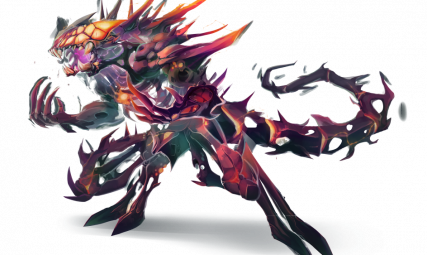
How Do Antibodies Work?
Antibodies are Y-shaped proteins and irreplaceable warriors of your immune system.
When a virus or any other pathogen attacks you, your body can tell they’re imposters because of antigens, i.e. molecules on pathogens’ surface.
Your own cells also have antigens on their surface, but your immune system knows they belong to harmless locals, so it leaves them be.
However, the moment your B-Cells spot harmful trespassers, your immune system initiates an appropriate response.
The first line of defense is comprised of leukocytes, including neutrophils, NK Cells and macrophages.
While they fight against the enemy, B-Cells work on producing antibodies.
The moment they get in touch with an intruder’s antigen, the process of clonal expansion begins, and B-Cells start to divide.
They produce two types of daughter cells:
- Plasma B-Cells: This type of B-Cells produces antibodies. And, boy, are they good at what they do! Your plasma B-Cells can make around 10,000 antibodies per second!
- Memory B-Cells: These guys preserve information about specific pathogens. If invaders decide to come back, your immune system’s response will be much faster than the first time. That’s because your memory B-Cells know exactly what type of antibodies can destroy that particular attacker. If you ever caught the same cold virus twice but wondered how you got over it much faster the second time, it’s because your memory B-Cells recognized it immediately, and your immune system knew exactly what type of antibodies to launch at the enemy!

Now, B-Cells can’t make as many antibodies as they want, nor can they produce whatever type of antibody they please.
Every B-Cell can make just one type of antibody!
The part of an antibody that binds to an antigen is called the paratope and the area of an antigen that connects to an antibody is the epitope. The two fit together like lock and key, meaning that for every paratope, there is just one perfect epitope, and vice versa!
Because of that, antibodies your B-Cells secrete to defeat the common cold virus can’t fight influenza viruses.
When antibodies latch onto antigens, they can cause different reactions in them, depending on the pathogen’s nature. For instance, in the case of toxins, antibodies can neutralize their poison. In other cases, antibodies can prevent pathogens’ movement and stop them from entering your cells or make them burst.
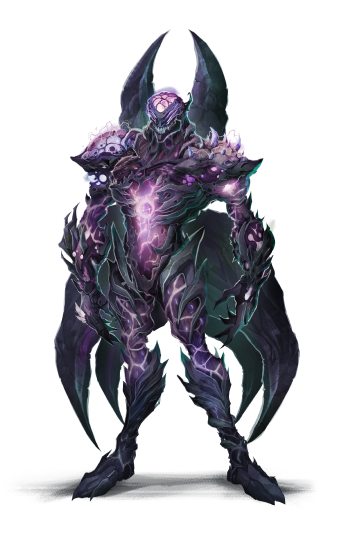
5 Types Of Antibodies Explained
Your body produces five main types of antibodies:
- Immunoglobulin G (IgG)
- Immunoglobulin A (IgA)
- Immunoglobulin M (IgM)
- Immunoglobulin E (IgE)
- Immunoglobulin D (IgD)
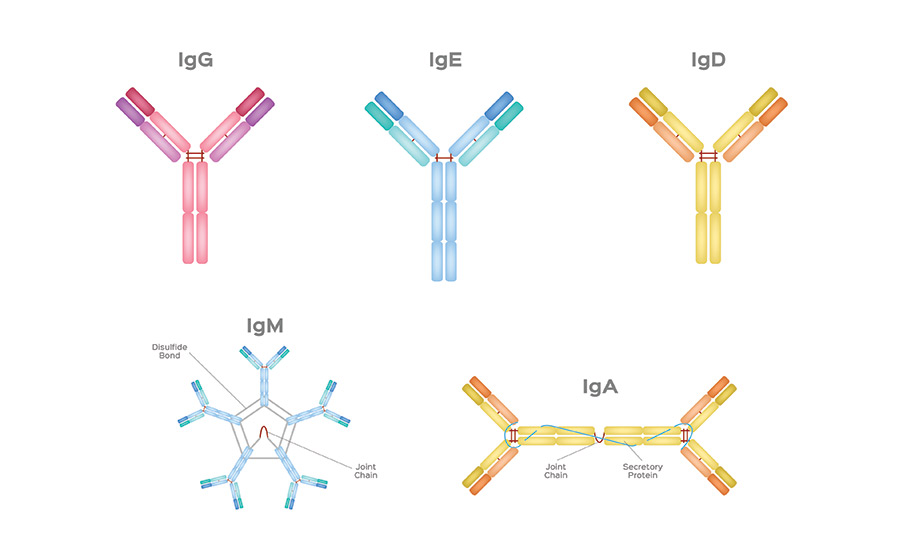
IgG Antibodies
Immunoglobulin G (IgG) is the most common type of antibody in your blood. It constitutes a whopping 70-75% of all antibodies in your blood!
This type of antibody is important because it can last for months or even years after you’ve had a viral or bacterial infection. IgG can either tag a harmful substance so that other warriors of your immune system can take care of it, or it can eliminate the threat on its own by releasing toxins to destroy it.
IgG is powerful enough to neutralize toxins and it can also trigger phagocytosis — a process during which macrophages engulf, digest, and destroy anything that doesn’t belong inside your blood.
IgG is the only type of antibody that a mother can pass through to a fetus via the placenta. That way, the infant has some sort of protection until it develops its own immune system.
IgE Antibodies
Unlike IgG, that makes up the majority of antibodies in your blood, immunoglobulin E (IgE) is the least common type your blood contains.
IgE protects you from parasites. Or, if you live in areas where parasite infections aren’t common, the levels of IgE can grow if you’re exposed to harmless allergens, such as pollen or pets.
When your immune system detects an allergen, IgE binds to basophils and mast cells. Both are types of white blood cells that, once connected with IgE via specific receptors, cause these receptors to break open, i.e. degranulate.
When receptors degranulate, they release histamine, a compound that, once free, causes inflammation. When that happens, you experience allergic symptoms, such as sneezing or having your eyes water excessively.
But that inflammation is a good thing! When it happens, your immune system rushes to repair it.
It sends eosinophils, another type of white blood cells, to the place where the inflammation is taking place and instructs them to annihilate pathogens.
IgD Antibodies
The function of immunoglobulin D (IgD) still isn’t entirely clear.
What we do know for certain is that these antibodies are very important during your immune system’s early response to a threat.
Think of IgD as one of the key players in charge of kick-starting your immunity!
IgD is glued to the surface of a B-Cell and acts as an antigen. However, we can’t tell for certain what kind of a signal IgD transmits. Either way, as a consequence, your immune response ramps up and IgD encourages it to produce IgM.
IgM Antibodies
Immunoglobulin M (IgM) is a type of antibody that first rushes to the scene when pathogens sneak in.
It is also the largest type of the five!
In fact, a single IgM is comprised of five basic Y-shaped proteins comprised into one big antibody.
Due to its size, IgM includes 10 antigen-binding sites.
When IgM binds with a pathogen, it sends signals to other immune system cells and instructs them to rush to the scene to prevent an infection from spreading.
IgM also helps a memory B-Cell remember a pathogen once it’s destroyed.
IgA Antibodies
Immunoglobulin A (IgA) protects you from inhaled and ingested pathogens.
IgA is usually present in breast milk, serum, nasal mucus, saliva and tears.
Alongside IgM, this is another type of antibody that is among the first to rush to the battlefield and attack pathogens.
IgM tags the enemy and sets it up for destruction.
Are Autoantibodies A Type Of Antibodies?
Aside from shooting antibodies at microbes, the immune system can sometimes make a mistake and turn against the body’s own cells. It perceives them as the enemy, and that’s when it starts making autoantibodies.
Autoantibodies are antibodies that mistakenly target substances a person makes on their own.
Usually, your immune system can tell the difference between something you produced and a foreign substance. But sometimes, the immune system can recognize the body’s cells as intruders and attack those cells, organs and tissues.
People whose B-Cells produce autoantibodies suffer from inflammation, which may cause damage to organs and lead to the development of autoimmune disorders.
What Are Autoimmune Disorders?
Autoimmune disorders develop as a consequence of one’s body attacking its own healthy tissues.
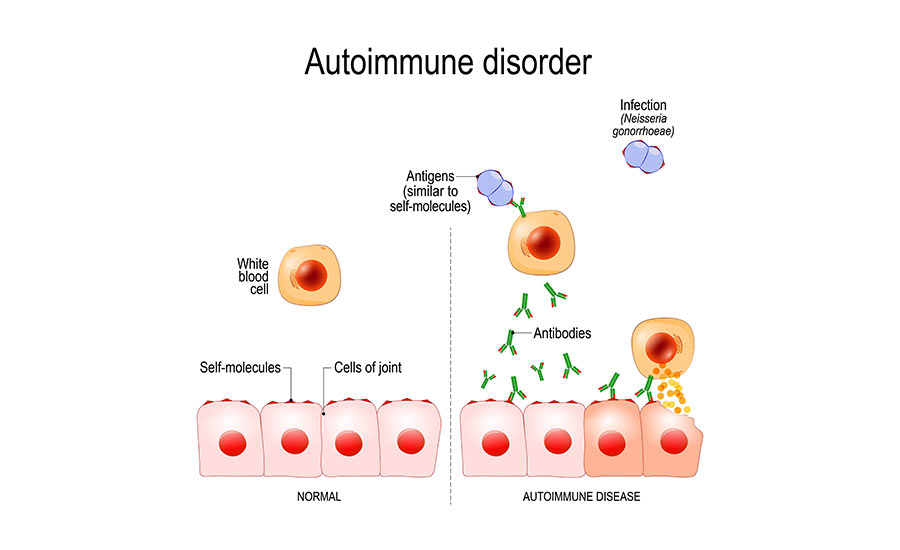
Although no one can say for certain what prompts the immune system to start making autoantibodies, it seems that most autoimmune disorders develop because of a combination of genetic predisposition and environmental triggers, such as viral infections.
Hormones are also believed to influence the development of autoimmune conditions because more than 85% of patients with autoimmune diseases are women.
Women go through several hormonal changes in their lifetime, especially during puberty, pregnancy and menopause. Those changes significantly impact women’s immune system and can make them more vulnerable to autoimmune disorders.
When a person develops an autoimmune condition, they could suffer organ damage and changes in their function, body tissue destruction, and abnormal growth of one or more organs. Moreover, autoimmune disorders often affect muscles, blood vessels, skin, thyroid and pancreas.
Some of the most common autoimmune disorders include type 1 diabetes, multiple sclerosis, Grave’s disease, psoriasis and lupus.
Recap On Types Of Antibodies
Antibodies are the indispensable members of your body’s fearless army and the brave protectors of your health.
Depending on the pathogen’s nature, your B-Cells produce specific types of antibodies that have the ability to neutralize that particular enemy and bring back peace to your blood and organs. So, whether viruses, bacteria, toxins, allergens or parasites get into your bloodstream, your majestic immune system knows what kind of antibodies to produce to target each and every one of the intruders.

